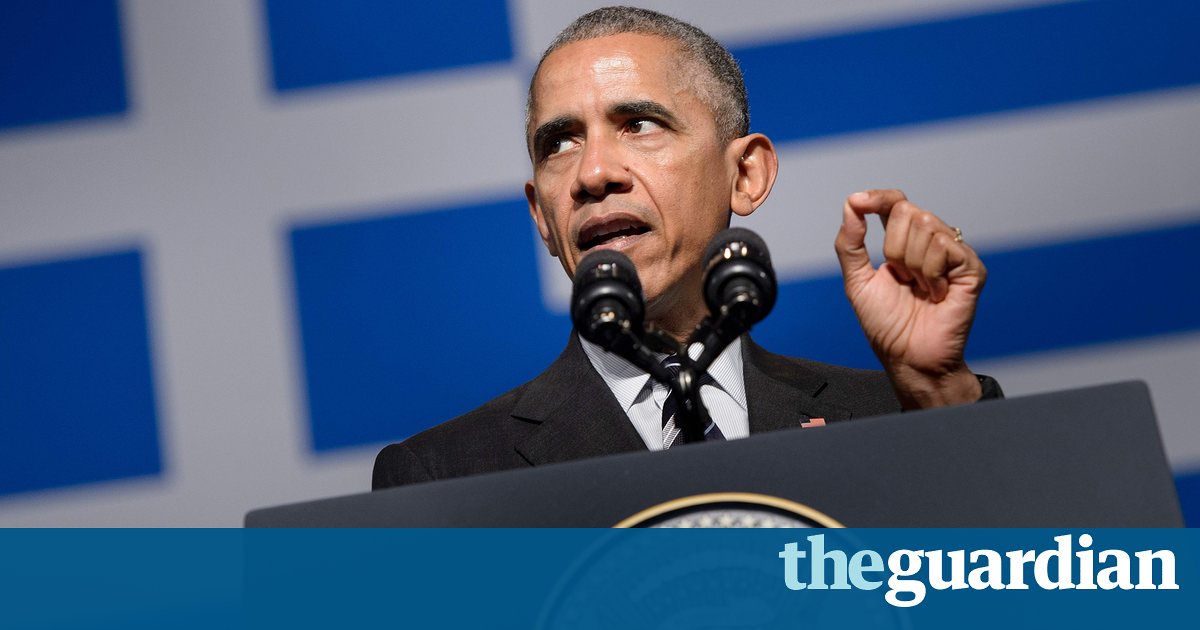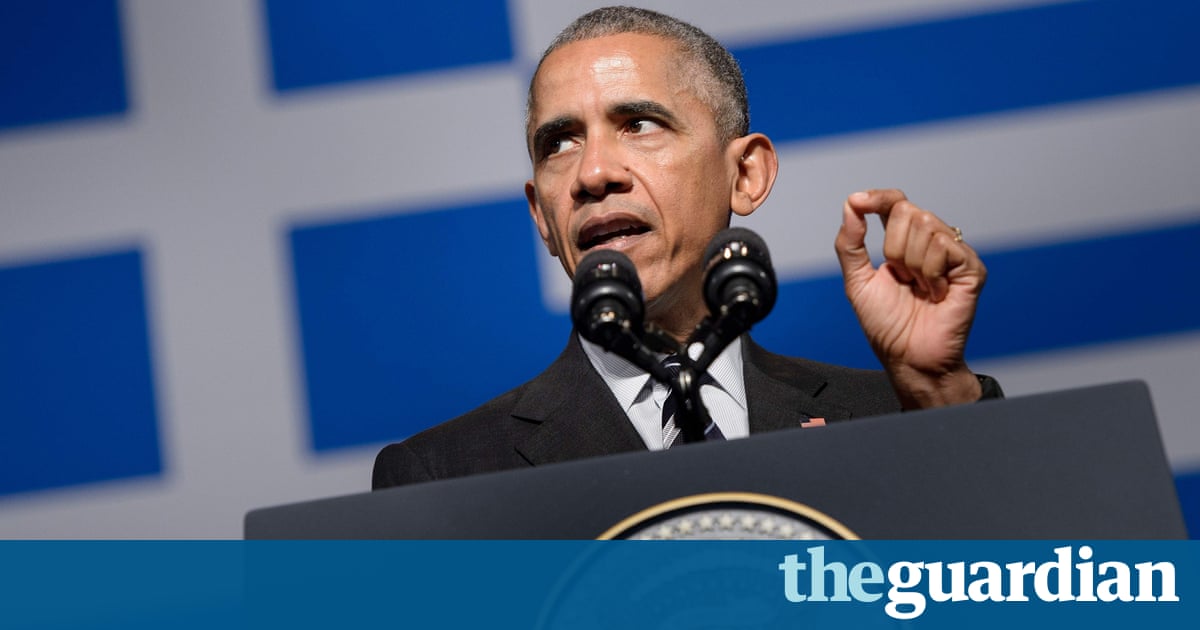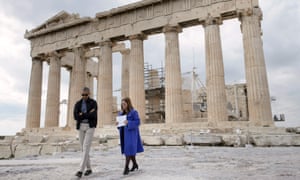Obama calls for ‘course correction’ to share spoils of globalisation

Speaking in Athens, outgoing US president says backlash against globalisation is giving rise to populist movements

Barack Obama has warned that a backlash against globalisation is boosting populist movements both at home and abroad and called for a course correction so the benefits of an increasingly interconnected world are shared more equally.
In what is likely to be his last major speech on his final visit to Europe as US leader, Obama, shaken by the unexpected victory of Donald Trump in last weeks US presidential election, said in Athens that globalisation could not be rolled back.
We cannot sever the connections that have enabled so much progress, he said. But, he warned, it was leading to increasing inequality around the world, and fast-moving technological innovation as well as causing enormous disruption to many workers lives was making it easier for people to see it.
The current path of globalisation demands a course correction, Obama said. In the years and decades ahead, our countries have to make sure that the benefits of an integrated global economy are more broadly shared by more people, and that the negative impacts are squarely addressed.
The president added: When we see people, global elites, wealthy corporations seemingly living by a different set of rules, avoiding taxes, manipulating loopholes this feeds a profound sense of injustice.
The impulse to pull back from a globalised world is understandable, he said; leaders around the world must do more to reduce inequality, fight corruption, ensure governments are effective, and restore citizens trust in institutions: We have to make clear that governments are there to serve the people.
Americans and Europeans were feeling increasingly disconnected from governments and institutions, he said, praising the European Union as one of the great achievements of human history. But he warned following the UKs Brexit vote and as the continent faces a surge by anti-EU parties in elections next year that disconnection bred suspicion.

Citizens of all countries share the desire to control their own lives and communities, Obama said. But he stressed: People have to know that theyre being heard. A strong, unified Europe was good for America and the world: We know what happens when Europeans start dividing themselves up the 20th century was a bloodbath.
Mentioning the president-elect briefly by name, Obama said he and Trump, a billionaire property developer and reality TV star whose fierce, often divisive rhetoric helped produce one of the ugliest election campaigns in living memory, could not be more different.
But at the end of a two-day visit to Greece, he reassured his audience that US democracy was bigger than any one person and as long as people maintained their basic faith in democracy, our future will be OK. Free and fair elections were essential, he said, because citizens needed to choose their own leaders even if your candidate doesnt always win.
Alluding to Trumps campaign suggestion that the US might not defend Nato allies that did not pay their fair share of the transatlantic alliances cost, Obama said he believed Washingtons commitment to the organisation would continue.
Greece, a Nato member, should remember that the alliance had been consistently supported by both Republican and Democratic administrations, he said, winning further applause from his Athens audience by saying their countrys acceptance of refugees had inspired the world but that Greece cannot be expected to bear the burden alone.
Obamas speech, before an onward trip to Germany where he will meet the chancellor, Angela Merkel, as well as Theresa May and the French and Italian leaders Franois Hollande and Matteo Renzi, followed a morning tour of the Acropolis and its museum. It was the first official visit by a sitting US president since Bill Clinton.